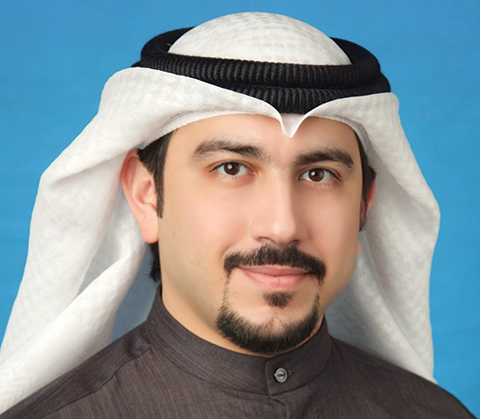While cleaning their flat, Premlal Pullisserry turned to his wife and jokingly said: "If only we can store some of these things at our neighbor's house." As it turns out, the problem Premlal identified wasn't a joke, and he started Boxit, a smart solution for physical storage. He recently secured the highest amount for a seed funding round in the MENA region. Here's Boxit's story...
Premlal's problem
All successful startups have their roots in a problem painful enough for people to start using the products or services the startup has to offer. The problem may not be obvious at first. That's because human beings are prone to going numb after repeated exposure to pain. Compare email to snail mail (sending letters in a stamped envelop). How much more convenient is email? But many, many people were comfortable using snail mail because that's what they assumed sending messages should be like. When email came along, our understanding of what's possible shifted, and we could see how vastly better life can be with innovative solutions that question our assumptions about reality. Think of the value all successful businesses create, and imagine life without these businesses (Google, Facebook, Apple, etc). Premlal's startup hopes to change the way people imagine their lives to be, and how they manage the "stuff" clogging up their living spaces.
How Boxit works
If you have things at home you want to keep but don't currently use, then Boxit might be your savior: (1) Use the Boxit mobile app to request the number of boxes you want. (2) The boxes get delivered to your address, and you pack the boxes with your stuff (taking pictures on the app as you pack). (3) You request a pickup date and time for the boxes to be taken, as you look admiringly at how neat your place now looks. I personally used Boxit to store my library of books that made me feel overwhelmed with all the reading options I had (plus a box of wires I didn't know what they're for but didn't have the time to figure out). The app can be used to store seasonal clothing. It is ideal for young Kuwaiti families currently renting small flats before moving in to their own houses. Expats can also use it for items they wish to keep for when they return home and don't find a use for in Kuwait.
Validating the business
Before diving into the startup world, Premlal worked at a logistics company. While there, he began doing his research on what storage solutions he can offer and if there were any other startups doing the same thing. His research only confirmed the need for such a service. US startups offering boxes for storage were in high demand from users and were receiving substantial funding from investors. Premlal also conducted over 120 interviews in different locations around Kuwait (The Avenues Mall, hotels, restaurants, etc) to gauge people's interest. Some signed up for the service before he even launched his business! But that was convincing enough for him to take his startup idea more seriously.
 (From left to right): Abraham Thomas, Co founder & VP - Operations, Subah Al Bader - Angel Investor & Kuwaiti partner, Premlal Pullisserry, Co founder & CEO are seen in this photo.
(From left to right): Abraham Thomas, Co founder & VP - Operations, Subah Al Bader - Angel Investor & Kuwaiti partner, Premlal Pullisserry, Co founder & CEO are seen in this photo.
Getting the right support
Premlal's colleagues - Joby Mathew and Abraham Thomas - became his cofounders, and they were all passionate about the need for personal storage solutions. Premlal met his angel investor, Subah Albader, through an existing client who knew about Premlal's startup idea and ambitions. When Premlal was ready to make the leap and focus full time on Boxit, he found Sirdab Lab, and was able to get the right guidance for his startup and work from the coworking space it offered. "Sirdab Lab is the best place to start for startups starting out," Premlal told me (and I hope he didn't just say that to make me happy). "StartupQ8, Nuwait, Sirdab Lab, Brilliant Lab, Mefazec, Coded. These small communities are slowly transforming the startup ecosystem," he added.
The domino effect
Premlal participated in the GCC Challenge, a Startup MENA initiative hosted in Kuwait at Sirdab Lab, which took him to Dubai for the finals. Jakob Kistorp, cofounder of Startup MENA, introduced Premlal to Abed Shaheen, CEO of InfoFort, who later introduced Premlal to Nader Museitif, Merger and Acquisition director at Aramex. This led to a fruitful partnership between startup and logistics giant, where Aramex would handle Boxit's delivery and storage needs. Winning Smart City App Hack in 2015 gave Boxit great exposure, as it coincided with the Gitex exhibition in Dubai, with news reaching a number of investors in the startup space. Boxit managed to raise $600,000 in its seed round of funding, led by Wamda Capital. It has expanded beyond Kuwait to offer its services in the UAE and is now based in Dubai.
Events & opportunities
Some entrepreneurs choose to work on their startups in the dark, without engaging with potential customers, partners, or investors. This can limit a startup's chances for success, and as Premlal's experience shows, putting yourself out there can lead to valuable connections and opportunities. "The journey involves lots of learning," Premlal said. And it seems that entrepreneurs need to be comfortable learning along the way, whereas "wannapreneurs" (those who want to start something but never get started) continue to learn more and more without putting their learning into action.
Correction: The dates mentioned in my previous article about the Founder Institute have since changed. The correct dates are: July 20: Startup Funding 101: How To Raise Capital For Your Idea (Register at:http://FI.co/e/93621)- July 27: Making The Leap From Employee To Entrepreneur (Register at: http://FI.co/e/93611)
.jpg)




